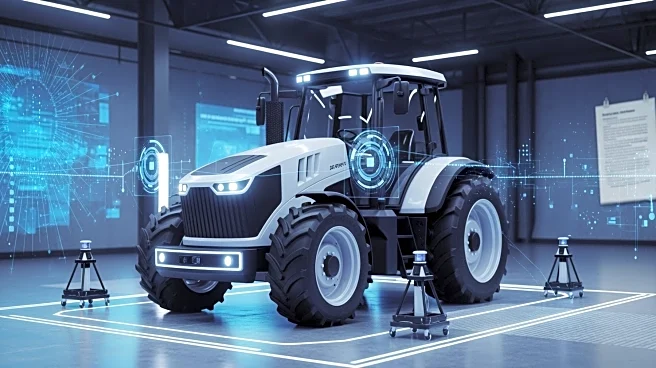What's Happening?
The French machinery manufacturer Kuhn has postponed the commercial release of its autonomous tractor, Karl, despite the vehicle being technically ready for market. The delay is attributed to unclear legislation regarding the use of autonomous vehicles
in agriculture. Different suppliers have varied interpretations of existing regulations, leading Kuhn to conclude that the current legal framework is insufficiently clear to avoid potential liability risks. Karl, equipped with advanced sensors for detecting tine breakage and automatic depth control, has been tested in real-world conditions, but its market introduction remains on hold.
Why It's Important?
The delay in launching the autonomous tractor Karl highlights the challenges faced by the agricultural industry in adopting new technologies. Legislative uncertainty can hinder innovation and slow the integration of autonomous systems, which have the potential to revolutionize farming practices. The postponement affects stakeholders in the agricultural sector, including farmers seeking to enhance productivity and efficiency through automation. It underscores the need for clear and supportive regulations to facilitate technological advancements in agriculture.
What's Next?
Kuhn and other manufacturers may engage with regulatory bodies to clarify legislation and advocate for policies that support the use of autonomous vehicles in agriculture. The industry might see increased collaboration to develop standards and guidelines that ensure safety and compliance. As legislative clarity improves, the market for autonomous agricultural machinery could expand, driving innovation and investment in the sector.
Beyond the Headlines
The situation reflects broader ethical and legal considerations surrounding the deployment of autonomous technologies. It raises questions about liability, safety, and the role of regulation in fostering innovation. The delay may prompt discussions on the balance between technological advancement and regulatory oversight, influencing future policy development in the tech and agricultural sectors.















